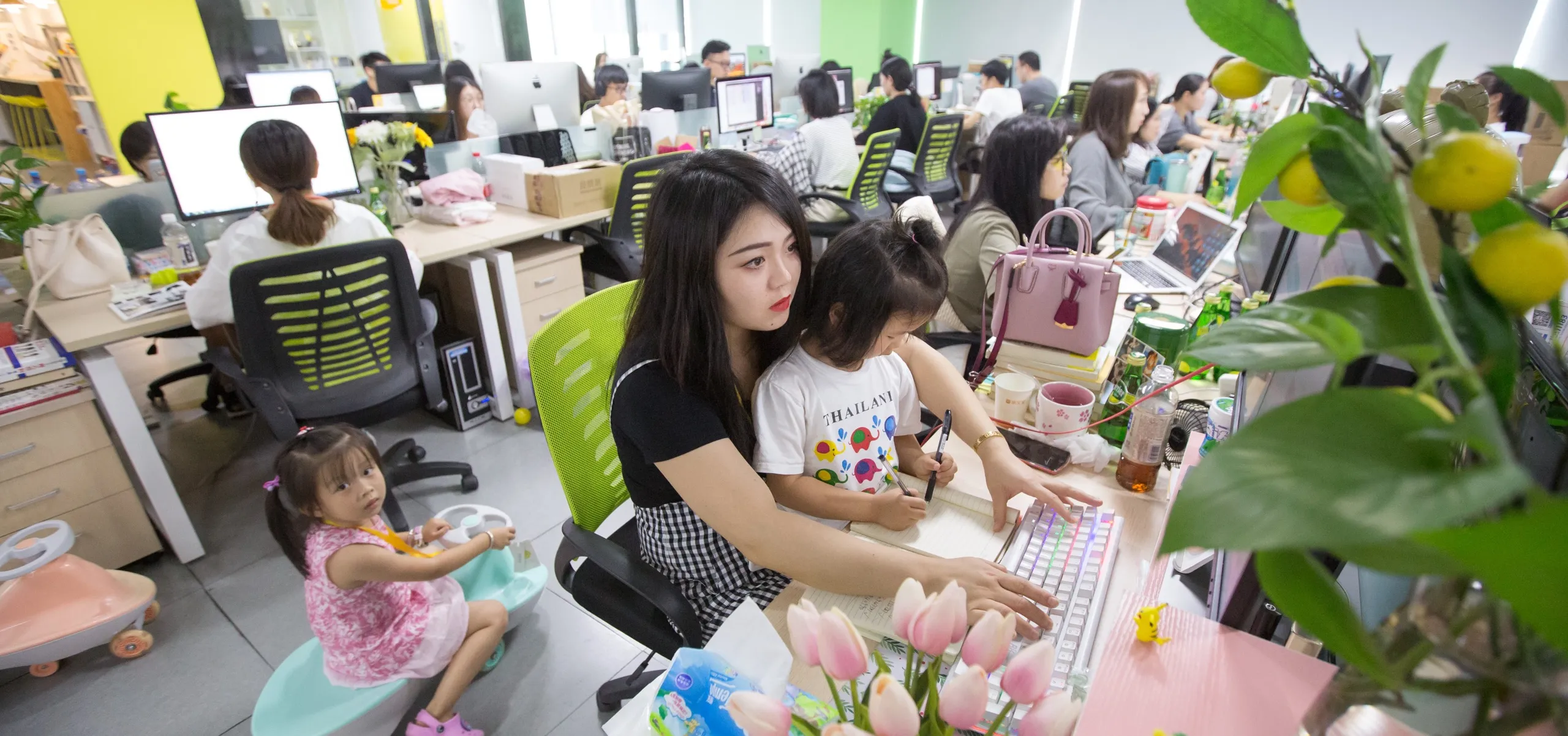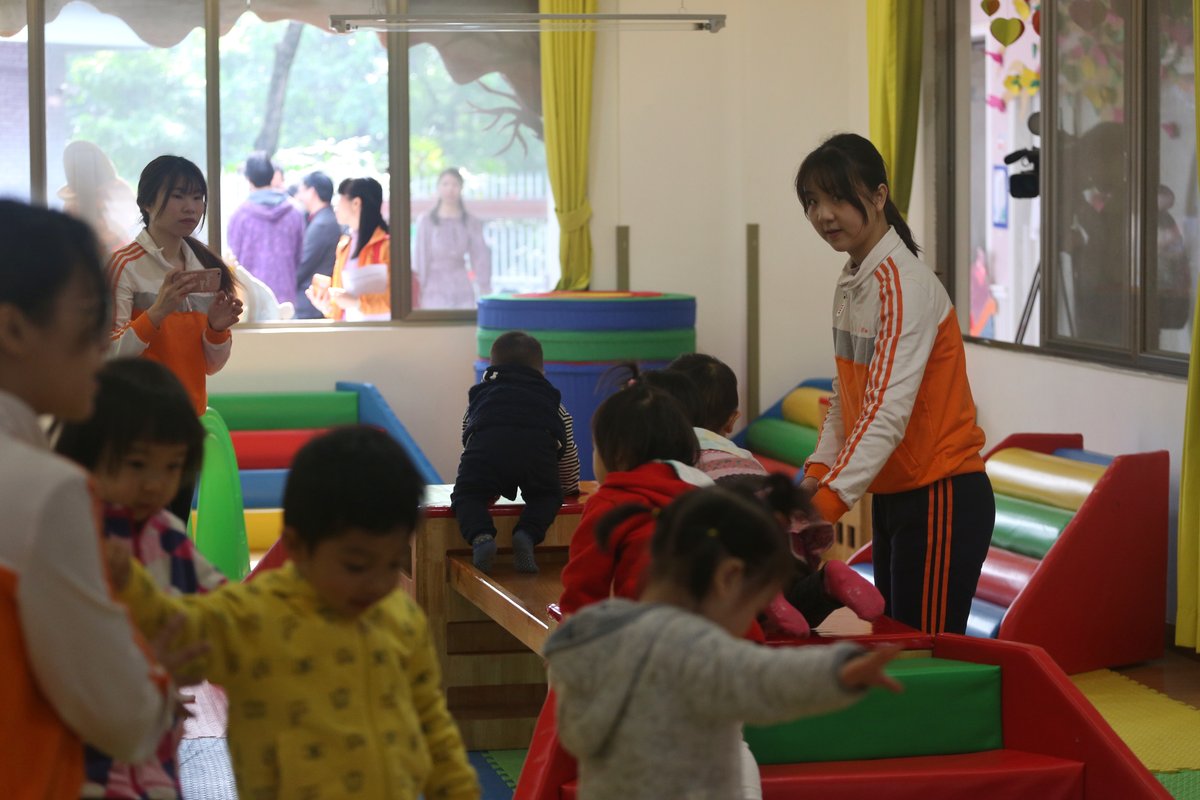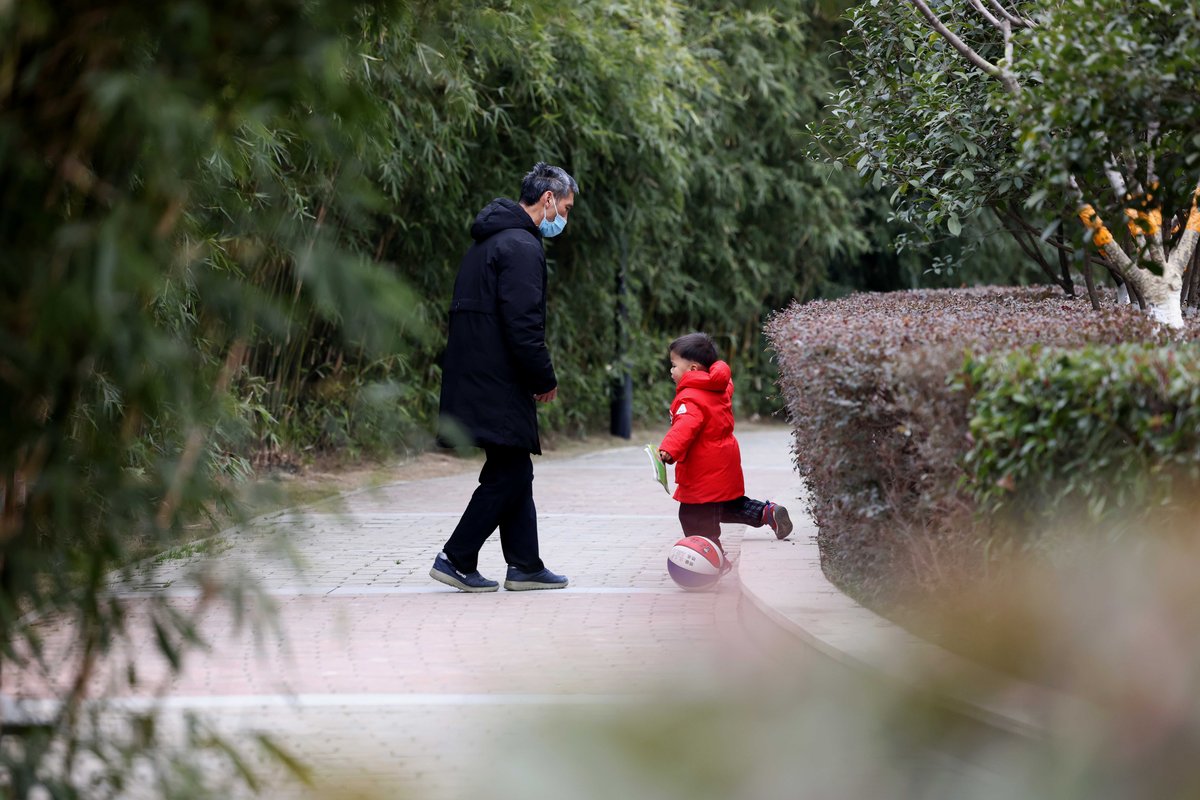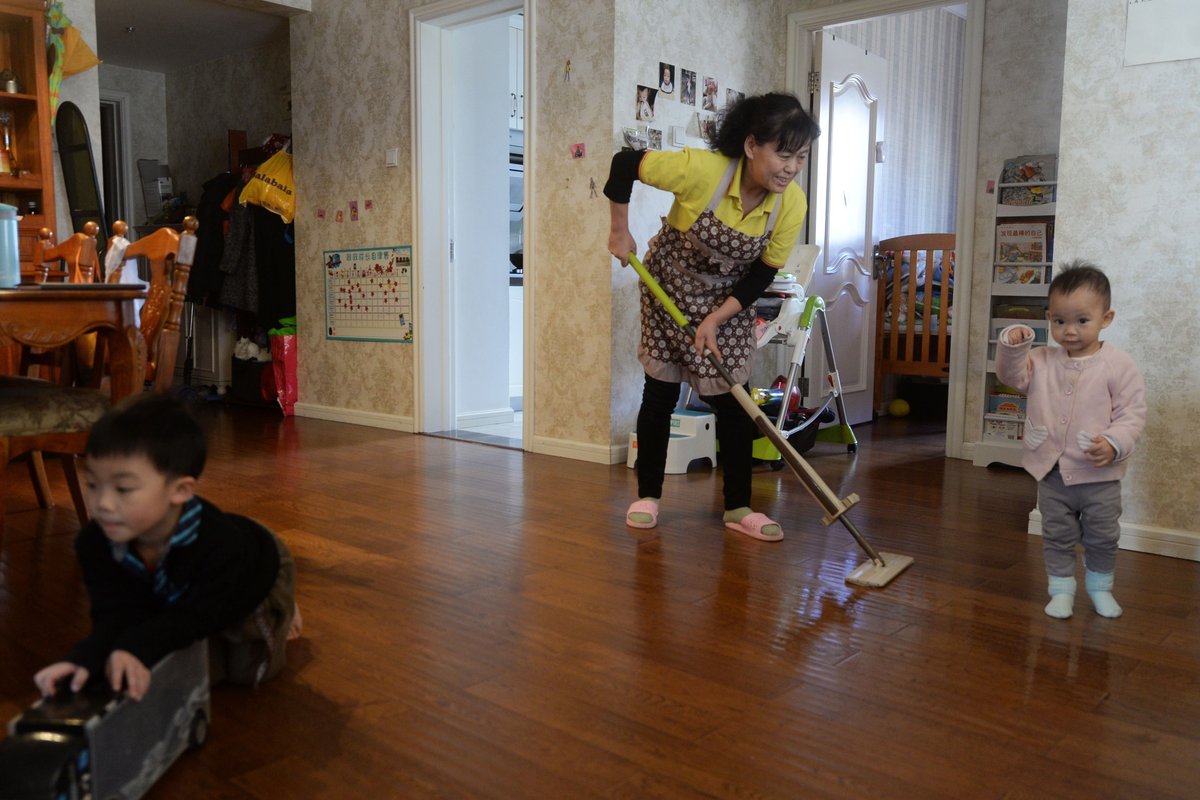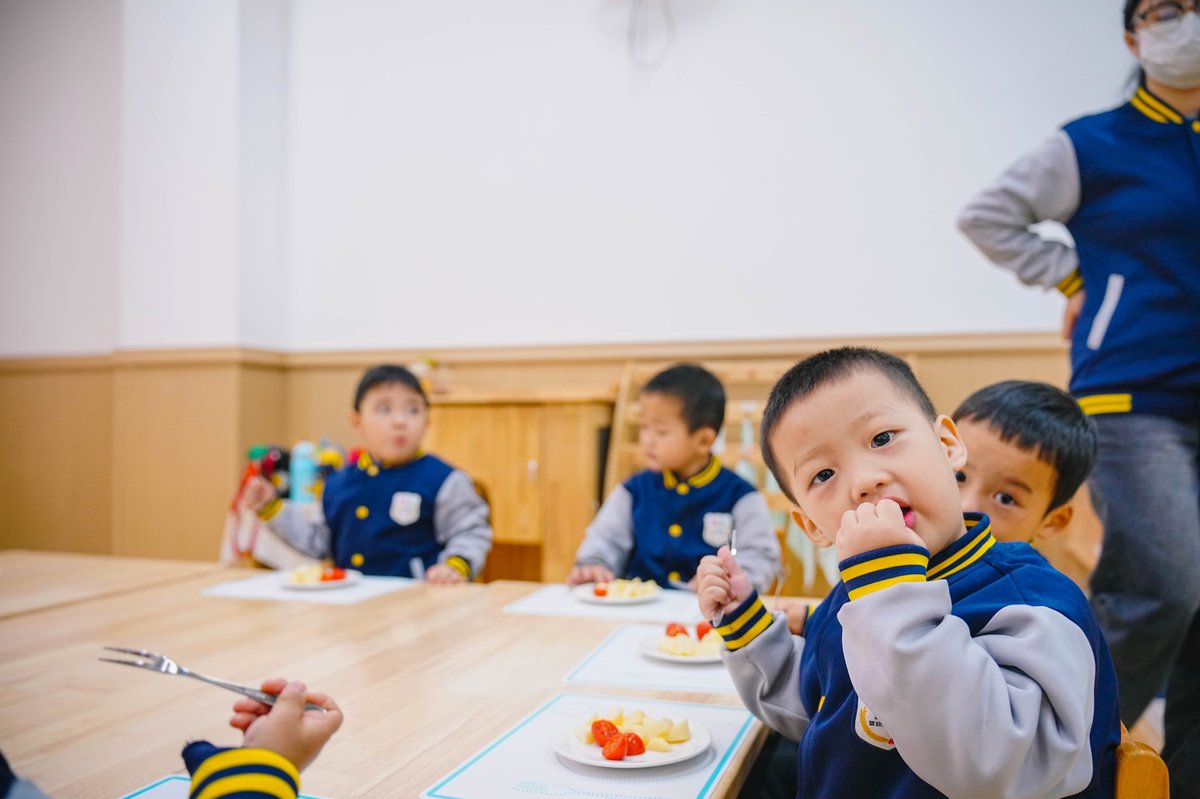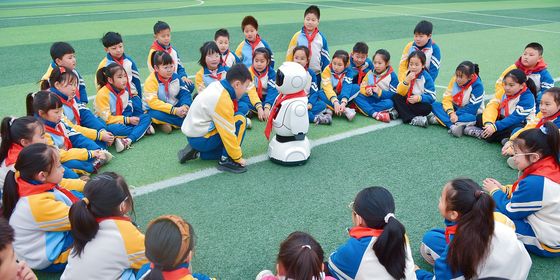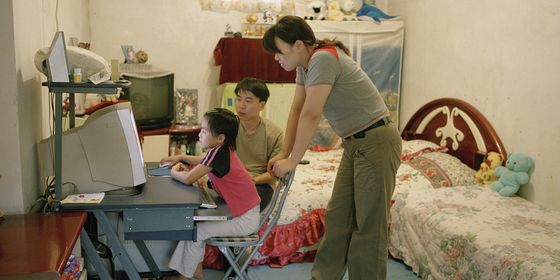China is encouraging couples to have more kids, but affordable childcare remains a tall order
To find a high-quality daycare center for her son Shengmeng, offering sanitary conditions and a location not too far away from her home, 35-year-old Wang Xinxin decided to take a drastic step: starting her own.
In 2020, Wang, a director at a Shenzhen-based early education firm, decided to send 2-year-old Shengmeng to daycare to cure his attachment issues and teach him some essential skills. “We wanted to find a center with a good environment, teachers, and lessons, and bilingual support,” she tells TWOC. But after visiting 20 daycare centers in one year, the only satisfactory place Wang found was 50 minutes away from her home, and their hours ended too early for her to pick up Shengmeng after work. She had to compromise with a private local center, whose poor sanitary conditions she later blamed for giving her son bronchitis.
The following year, Wang, who has a doctorate in early childhood education, quit her job and rented a space in her community, offering care for children aged 18 months to 3 years old with full-time caregivers, native-speaking English teachers, and newly refurbished classrooms—though the center has only enrolled 13 children by January of this year, due to the pandemic. In all, the venture has cost Wang 2 million yuan, which she doesn’t see as a burden but rather a long-term investment in her postdoctoral studies on child development.
But others are not as lucky, with many Chinese working couples struggling to parent their children, mothers especially putting their careers on hold to raise young kids at home, grandparents sacrificing their retirement years to babysit, and even families able to afford live-in nannies grappling to find qualified and reliable caregivers.
Daycare centers were once accessible and affordable for working families across China, but gradually disappeared in the 1980s when the introduction of the market-oriented economy gradually returned the responsibility of childcare from the state to the families. Publicly funded nurseries, or tuo’ersuo (托儿所), first emerged in the late 1920s as part of the Republic of China’s war efforts against Japan, enabling women to work in factories. The PRC continued this tradition in the 1950s, with government institutions, state enterprises, schools, and hospitals in urban areas building nursing rooms and tuo’ersuo for their employees. In villages, daycare centers and childcare committees were also set up during harvest season to encourage women to participate in labor.
Since 2016, when China relaxed its family planning policies to allow families to have two children, the growing newborn population has led to a greater need for childcare services, but the limited childcare facilities nationwide have failed to meet the public demand.
According to the National Health Commission, a third of China’s 42 million children under the age of 3 required childcare services, but only about 5.5 percent of infants and toddlers were enrolled in nurseries across the country as of 2021—much lower than the kindergarten enrollment rate for kids aged 3 to 6 at 88.1 percent, according to an April 2022 report by People’s Daily. This is far below the 36.1 percent average nursery enrollment rate in OECD countries such as Denmark, according to market research group iiMedia.
Wang still remembers that when she was a child, the college where her mother worked offered a daycare service that was “convenient and served the social need.” These early childcare programs, however, were put to a halt until 2010 when the State Council laid out the Pre-school Education Three-Year Plan (《学前教育三年计划》), which put an emphasis on expanding the enrollment of children aged above 3 years old, making public kindergartens gradually get rid of early childhood programs in order to provide care and educational preparation for more children from age 3 to 6.
The lack of favorable childcare options compels many Chinese couples, especially mothers, to give up their careers to look after their children at home; rely on their exhausted elderly parents, who often have to move from the countryside or another city to look after the grandkids full-time; or hire expensive nannies. These factors all keep couples from having more kids, despite the relaxation of family planning policies. In a 2021 survey by China Youth Daily, 88 percent of around 2,000 couples in their 20s and 30s surveyed admitted being worried about childcare, and more than 75 percent expressed their urgent need for care services for their children aged under 3.
Culturally, Wang has also found that Chinese families express reservations about sending young children to nursery school below the age of 2—compared to the US, where some infants are sent to daycare at 6 months old. She has felt the hesitation among parents while recruiting kids. “Parents feel 2 years is too young and want to send their child when they grow older, like 2-and-a-half, when the child has a strong need for social interaction,” she observes.
Grandparents are even pickier about infant care, expressing worries about putting a child in a social group at a young age. This may be due to traditional family structures where several generations used to live under the same roof and grandparents were expected to help raise children, in addition to factors like the lack of affordable childcare. “In China, parents always send their kids directly to kindergarten at the age of 3 and take care of the kids themselves until then,” Wang alleges.
State-owned nurseries still exist in China, but many are operated by third parties for profit. Private corporations, including transportation mobile platform DiDi, leading e-commerce giant JD.com, and online travel service provider Ctrip, have also offered nursery services for employees, but intermittent reports of child abuse in privately run nurseries have sparked outrage and concerns about the industry. In 2017, viral footage online from a Ctrip nursery showed a caregiver throwing a little girl’s bag on the ground before pushing her down, causing her to hit her head on the edge of a desk. The nursery was shut down, and later revealed to have been operated by an agency called School for the Children under the Modern Family magazine, which had no experience running a daycare center.
Xian Qinghua, a graphic designer living in Qingdao, Shandong (and an occasional TWOC collaborator), feels concerned about daycare services for her 18-month-old daughter Guoguo after reading about child abuse scandals online. “She’s so little. I can’t help thinking that if she goes there, will she feel safe?” Xian tells TWOC. “There may be around three teachers taking care of dozens of kids, so what if my daughter has an accident? Does she understand why her parents send her there every day?”
The 37-year-old previously relied on her in-laws for childcare, but finally resorted to a nanny after the older couple complained about the workload. At the moment, she pays her nanny, a woman in her 50s, 5,500 yuan a month. During the week after the grandparents left but before the nanny came, Xian had to take time off work to take care of her daughter full-time. “I didn’t work for two whole days, but I can’t afford being out of work all the time, so I asked my mother to help out with watching my kid while I was in charge of her basic needs like eating, sleeping, and pooping.”
Xian’s in-laws still have to step in during emergencies, such as last December when the nanny took a month off due to knee surgery. She hopes her in-laws can continue to help. “No matter how great the nanny is, she is still not part of our family. I sometimes feel anxious that she will mistreat my daughter when she takes her for a walk, or whether she will just put her inside the baby carriage and look at her phone, or ‘bribe’ her to behave with a lot of snacks,” Xian says. She believes grandparents will always do a better job, though their childcare methods may be old-fashioned.
Reports of unreliable nannies at home also abound. Last July, a nanny in Hubei province was caught on home video slapping an 8-month-old baby girl because the little girl was reluctant to sleep. Last December, a middle-aged nanny in Liaoning was exposed for beating an 18-month-old baby inside an elevator in a baby carriage. In Xiamen in 2019, a supposedly highly qualified nanny killed a 9-month-old after smashing her to the ground, allegedly because the baby would not stop crying, and was found to have obtained fake qualifications at the cost of just 500 yuan.
There are no standardized certifications needed legally to become a nanny, but parents typically wish to see a license issued by the Ministry of Human Resources and Social Security of the PRC, indicating the nanny has gone through professional childcare training. To obtain a license, caregivers should have no record of corporal punishment or child abuse, and no major incidents leading to serious infant injury in their past.
To obtain a license to operate a private daycare center, business owners must prove they have both indoor classrooms and outdoor playgrounds. However, many centers do not meet these requirements, as they rent space in shopping malls, community buildings, and offices, and get around the regulations by registering as early childhood education centers, which technically means they offer educational courses instead of childcare.
On the flip side, low salaries for nannies and reports of mistreatment by some employers also engender mistrust in the caregiving industry. “To put it plainly, if you give one caregiver 20,000 yuan and one caregiver 5,000 yuan, which one do you think will be more enthusiastic about giving you feedback?” asks Wang. Live-in nannies may be dependent on their employers for food and lodging, and have no fixed hours for working. Additionally, clashing values over issues like corporal punishment and nutrition between urbanized parents, grandparents, and nannies, who are often older women with a lower level of education, can lead to conflicts and mistrust.
Lin Meinong, a 48-year-old yuesao (月嫂), or “postpartum nanny” caring for new mothers and newborns in the first months after birth, was attracted to the industry by the high salary and her love of children. She obtained a certificate as an advanced caregiver in 2016, and earns about 15,000 yuan per month as a yuesao in Changsha, Hunan province.
Her job is a demanding one, requiring round-the-clock service of the mother and infant’s basic needs including feeding, washing, changing diapers, and preparing nutritious and balanced meals for 26 days straight with no fixed break times. She recalls a difficult employer from 2019 who only allowed her to eat leftover food. “Some people who hire us want us to do everything, and they think since our salary is so high, they can save money on our meals and speak sarcastically to us,” she tells TWOC.
Huang Shun, a senior investment researcher from Chongqing, interviewed over 20 nannies before she found her current one, but still isn’t satisfied. The 32-year-old remembers seeing her daughter sitting in the bathtub alone last September without the nanny. “I have to tell or even warn her repeatedly of safety issues like ‘you can’t leave the baby in the shower alone, she could slip and fall in the bathtub,’” she says.
Huang suggests that the government could build a credit platform so that parents can perform background checks on nannies, and even wrote this suggestion to the governor of Chongqing on a public message board in 2020, though she received no response. She thinks a similar system could be used to regulate daycare centers. “The platform can offer information like when the center was established, how many teachers they have, and how’s their education background, the health conditions, and the quality of the food served,” she tells TWOC.
Wang doesn’t think the incidents of abuse will hinder the childcare industry’s development. “It reminds me of a documentary on air tragedies. Why do airlines become more and more safe? Because every accident brings a step forward for the airline industry. That means each problem is a sign of development,” she says. “It will remind us to improve the industry, like improving the training of employees, training before employment, and raising salaries. It will show [caregivers that] the greater your abilities, the better wages you will have, the more training you will get, and the more opportunities you will have.”
To address ongoing concerns over childcare, local governments are making efforts to offer more nursery centers and training for qualified teachers. Last December, Shanghai played a leading role in rolling out legislation for preschool education and childcare services and encouraging community-based inclusive childcare services by establishing daycare centers. The National Health Commission plans to enable 4.5 children out of every 1,000 to receive nursery services by offering more publicly funded nurseries under kindergartens by 2025.
Addressing more fundamental problems behind China’s declining birth rate, many local governments are offering subsidies to parents, housing loans, longer maternity leaves, and subsidized daycare services. In Yunnan, as of this year, families will receive a 2,000 yuan subsidy for having a second child and 5,000 yuan for a third child. Shanghai, Zhejiang province, Heilongjiang province, and Tianjin have all extended childcare leave for both parents.
A 2021 paper titled “Impacts of Childbearing on Women’s Wage Rate in China” by Chen Wei, Dong Haoyue, and Liu Jinju concluded that women on average will see a 10 percent reduction in their wages after giving birth to one child, 18.9 percent after giving birth to the second, and 27 percent after the third. In order to care for her children, Huang, who used to work in equity investment, had to take a less demanding job that paid only two-thirds of her previous salary. “We hope that the government can take some action, as they encourage childbirth, but almost all mothers I know lost their jobs after having their second baby as they have to take care of their babies at home. If we can regulate the [daycare] market, new mothers can send their babies there before going back to work,” she says.
Wang believes parents today are becoming more interested in child development, which bodes well for improvements in the industry. “More people in third-tier and fourth-tier cities have a need for infant care, let alone the first- and second-tier cities. They have higher demands for better development of their children. Having specialized people take care of infant growth will be the trend going forward.”
But despite support from her husband and her daughter’s grandparents, Xian still feels overwhelmed by the pressure. “I need to consider many things, such as what the nanny isn’t capable of doing, how my child is doing at this stage of her development, and what she’s supposed to do in the next stage. Being a mother means it’s only natural to worry about your children.”
The Tall Task of Solving China’s Childcare Shortage is a story from our issue, “Kinder Cities.” To read the entire issue, become a subscriber and receive the full magazine.





